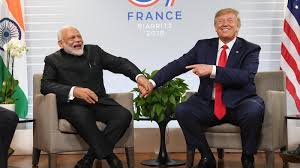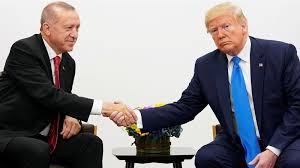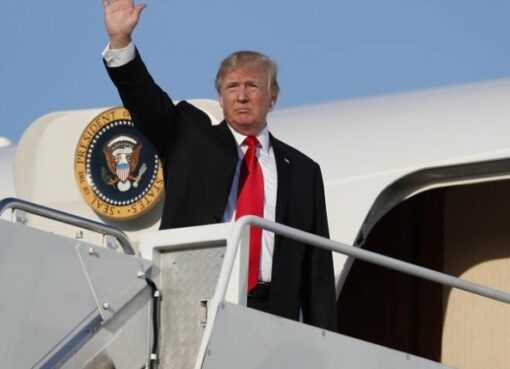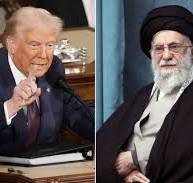Notwithstanding several indirect benefits of Trump’s policies coming in the way of India, it is to be remembered that he stands for himself and America alone and will not hesitate to impose harsh measures on New Delhi if it does not fall in line with his demands, particularly market access.
by Prasad Nallapati*
Donald Trump has won the US Presidential election in style proving wrong all predictions of a nail-biting finish.
The Republicans have also taken control of both houses of the Congress, the House and the Senate, giving Trump an unfettered freedom to implement his policies across all branches of the administration.
He already has a 6-3 conservative majority in the Supreme Court and may even expand it if the oldest liberal judge, Justice Sonia Sotomayor (70), chooses to retire on medical grounds.
While we would know how this has come about in due course as more research gets published, the debate right now across the world capitals, including New Delhi, is what Trump 2.0 means to them and how to adjust to new reality.
Well Prepared for Second Term
Trump is much better prepared this time on choice of people to fill the thousands of politically appointed officials across the agencies to quickly deliver his agenda of “Making America Great Again”.
His team is pretty much ready and Susie Wiles, Republican campaign co-chair, is the White House Chief of Staff, the first woman to occupy the position.
He has repeatedly stated that choosing wrong people was his biggest handicap during his first term. Four persons served as his Chief of Staff during that period, each leaving on acrimonious terms.
The DC `Beltway’ intelligentsia, comprising mainline media, intelligence and investigative agencies and Department of Justice, was all arraigned against him in the first term conspiring to produce false intelligence reports of his intimate relations with Russian President Putin and engineer his impeachment twice in the Congress.
His loyalists have since taken control of media houses like the erstwhile Twitter, which had terminated Trump’s account, the Washington Post etc. Elon Musk’s `X’ (new avatar of Twitter) has played an influential role in Trump’s victory and Washington Post refused to endorse the Democrat candidate, for the first time in its history.
He is all set to sprint, come January 20.
How His Policies Impact India
Trump’s second term is expected to be more consequential as no department of the government will be left untouched.
Immigration is top on his agenda as he declared during the campaign that he would be `dictator’ for one day, “only on day one”, of his term when he proposes to launch the “largest deportation programme in the American history.”
Many of the developing countries, including India, can expect increased plane loads of these illegal immigrants returning, although the initial focus is on `criminals and gang members.’ Mexico and Central America bear the brunt of this pressure with more stringent measures for border control.
Policy Against Illegal Immigration Serves India Well
Most of the illegals from India, numbering about 725,000, are from two states, Punjab and Gujarat. While many of them are common people who adventured into the US for economic benefits, some are real trouble makers sympathizing with Khalistani terror groups.
Tough measures against such illegal immigrants may in fact serve Indian interests well, as they may shut these Khalistani and Islamist elements who have been getting encouragement from US agencies to cross swords with Indian government.
The agencies, backed by elements in Biden’s administration, are coordinating with their Canadian counterparts to up the ante against New Delhi, accusing the latter of involvement in `organized killings’ of Khalistani elements.
Prime Minister Justin Trudeau, who depends on Khalistani parties for his political survival, has gone a step further to take cudgels publicly against Prime Minister Modi himself, and even implicating his top cabinet colleague, Home Minister Amit Shah, in the plot to target Khalistani terrorists in Canada.
The working of these agencies, particularly the Department of Justice, is likely to come up for a greater scrutiny and face a thorough shake up as part of measures to remove prejudiced officials and improve governmental efficiency.
Elon Musk, who is likely the man to be in charge of the task, has stated that “Trudeau will be gone in the next election,” in response to an observation on X. Trump’s return to White House spells trouble for Trudeau, who faced the former’s ire even in the first term.
Trump is least bothered of India’s domestic issues of human rights or treatment of minorities, thus sparing New Delhi of gratuitous public lectures. He is therefore unlikely to side with the Trudeau government in the diplomatic spat between India and Canada like the Biden administration did.
Proposed Reforms Shut `Life Line’ To Distorted Left-Extremist Culture And Wokeism
Another area that Trump is expected to take a serious view is growing left-extremist theories and woke culture that have infected academia, media and think tanks. He believes that many of the ills that befall the US can be cured by cleansing up this culture.
These elite American institutions are the source of “distorted” research that depict Indian society and its ancient culture in dark and negative image of casteism, racism and human rights abuse.
Added to this is the DEI (Diversity, Equity and Inclusion) initiative imposed on government agencies, education system and even corporate world in 2011 by President Obama. American companies have imported this movement into their Indian operations as well creating fear and deep divisions among their Indian employees.
These distortions and ignorant practices have such a detrimental effect even in the US that Trump is expected to remove all funding for such DEI initiatives.
`Congruence’ Rather Than `Conflict’ In Bilateral Relations
Even in the foreign policy, there are more areas of congruence rather than conflict between the US and India.
Both Ukraine and Russia will come under pressure from the Trump administration to stop expanding the war and negotiate a settlement. It may not be easy for Zelenskyy but his options are limited. He will have to give up territory and remove hopes of becoming a NATO member.
Trump does not carry any baggage of adversary relations with Putin’s Russia and he in fact considers China a bigger threat than Russia.
Taking Moscow out of Beijing’s orbit of dependency and single-mindedly focusing on China will remain part of his strategy, as his first term is any guide.
It was Trump who had energized the QUAD (Quadrilateral Security Dialogue comprising Australia, India, Japan and the US) during his first term to counter China’s rise and territorial ambitions. The US `Asia-Pacific Command’ became `Indo-Pacific’ in 2018 under his watch to give more prominence to India’s role against China.
While the US pressure on India’s relations with Russia would ease, expectations of New Delhi playing a bigger role in American regional military strategy may lead to some frictions as India is careful avoiding any military alliances, particularly as it is quite vulnerable across its northern Himalayan border areas.
Trump’s Middle East policy is also expected to end chances of the current skirmishes between Israel and Iran expanding further and to bring about an uneasy peace to the region.
Prime Minister Netanyahu gets a carte blanche to finish his war objectives quickly.
Hezbollah is being bombarded daily to eliminate whatever limited capacity it still has to threaten Israel. Its new leader expressed readiness for a ceasefire without linking it to Gaza. Within hours of Trump’s election, Houthis of Yemen announced complete `cessation’ of their operations in international waters.
All talk of Iranian retaliation for Israel’s October 28 attacks has evaporated as Trump’s policy of “maximum pressure” is looming large in more virulent form.
Saudi-US relations were at their best during Trump’s first term and are expected to grow further.
It is however to be seen how Mohammed bin Salman will handle the US pressure to normalize relations with the Jewish state after having taken the stand that such a prospect would only be possible when there is a clear path toward a two-state solution to Palestinian issue.
Peace in Europe and Middle East Revive Prospects Of Connectivity With India
The `relative’ peace is expected to revive prospects of connectivity projects like India-Middle East-Europe Economic Corridor (IMEC) passing through the GCC countries and Israel.
The International North-South Trade Corridor (INSTC) between India and Russia through Iran may also flourish if New Delhi is able to use its diplomatic muscle to wrest concessions as in the previous Trump administration.
Trump Stands For US Interests And India Cannot Assume Any Special Treatment
Notwithstanding such indirect benefits of Trump’s policies coming in the way of India, it is to be remembered that he stands for himself and America alone and will not hesitate to impose harsh measures on New Delhi if it does not fall in line with his demands, particularly market access.
During his campaign speeches, he labelled India a “very big abuser of trade ties” and that portends his line of action on taking over power. New Delhi will have to agree to some trade concessions so as to squeeze better bargaining elsewhere.
Various limitations are already in place for work visas and green cards for foreign workers, Indians being more affected, and they are only going to go further stringent.
Trump’s attempts to appease Hindu Indian American community during the campaign, in the context of attacks on the minorities in Bangladesh, cannot be taken on its face value as he is unlikely to expend his time on issues of low relevance from his point of view.
Mohammed Yunus, head of the interim government of Bangladesh, is no great friend of Trump. The latter had earlier revealed that Yunus was funding the Democratic Party. With no support from Washington, the Yunus administration may wither sooner than later, opening up space for ousted Prime Minister Sheikh Hasina and her Awami League.
With Afghanistan out of the way, Trump administration is unlikely to give much attention to Pakistan. Myanmar is also a low priority area, although he would not come in the way of the American groups, particularly the Evangelists, propping up Christian armed groups there.
The close personal bondage between Modi and Trump will, however, keep the bilateral relationship in good stead and minor irritants can easily be dealt with deft diplomacy.
(*Prasad Nallapati is President of the Hyderabad-based think-tank, “Deccan Council for Strategic Studies”, and former Additional Secretary in the Cabinet Secretariat, Govt of India)




